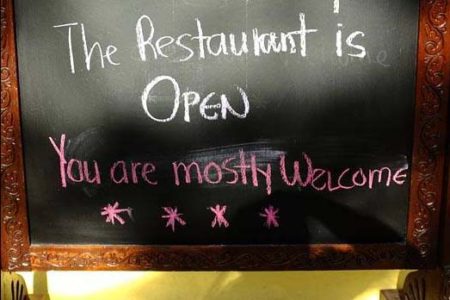
In general, I realize more and more the value of softness in this culture. It’s not just about knowing correct words but much more about understanding how things are said and what to use in different contexts.
Coming from a culture where being straightforward and direct in communication is considered an asset, it has taken me a while to understand Swahili culture.
Even so, it is a slow process which will continue for as long as I live here.
However, learning the language helps: words, expressions and the variation in verb tenses obviously reflect habits, traditions and customs.
In general, I realize more and more the value of softness in this culture.
It’s not just about knowing correct words but much more about understanding how things are said and what to use in different contexts.
Let me give a few random examples:
When I tend to say, ‘this security guard is new and still doesn’t know to open the gate fast’ in Swahili it is, ‘mlinzi huyo bado ni mgeni‘, or in other words he is still a ‘guest’.
More forgiving than my own critical words, and a very different tone!
Or ‘kikombe kimevunjika‘ translates in ‘the cup got broken’ not ‘he or she broke the cup.’ The language helps to hide the harsh reality of someone making a mistake.
As I left the fruit stall my bag with bananas hooked into a twig and one got squashed.
‘Ndizi imeumia,’ the seller said, saying the fruit got hurt. And he gave me an additional one for free.
The other day I was looking up the verb ‘ongoza‘ which means ‘lead or direct.’
A common tense for many verbs is the reciprocal version.
In this case it becomes ‘ongozana‘ and the meaning changes to ‘follow each other, move together in the same direction.’
To me a beautiful way to change the concept of a leader followed by others, into guiding one another.
Of course this softness has the drawback of keeping things vague and in the air.
It is not done to ask who is responsible — the object just got broken.
A worker can still be a guest and therefore one has to be patient until he understands all details of his job.
It was me who squashed a banana, but ‘bwana ndizi‘ makes sure I arrive home without questions.
Every day another discovery and just the beginning of understanding.

